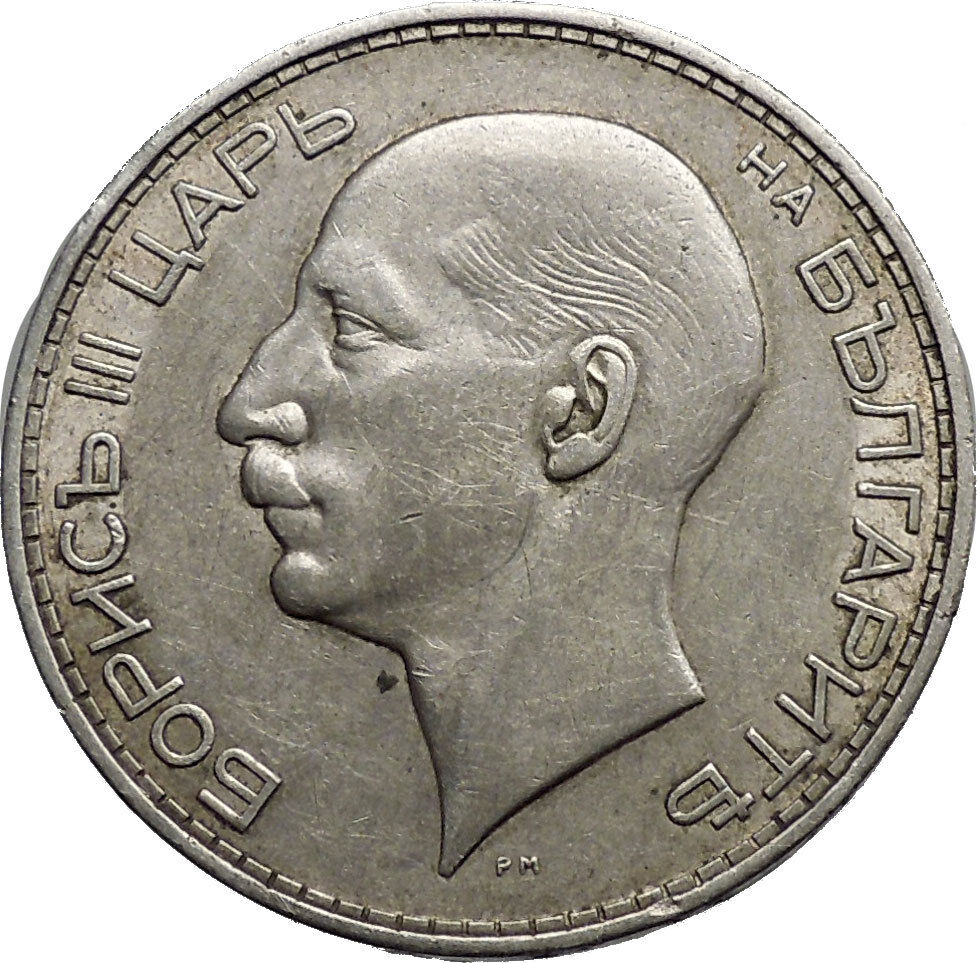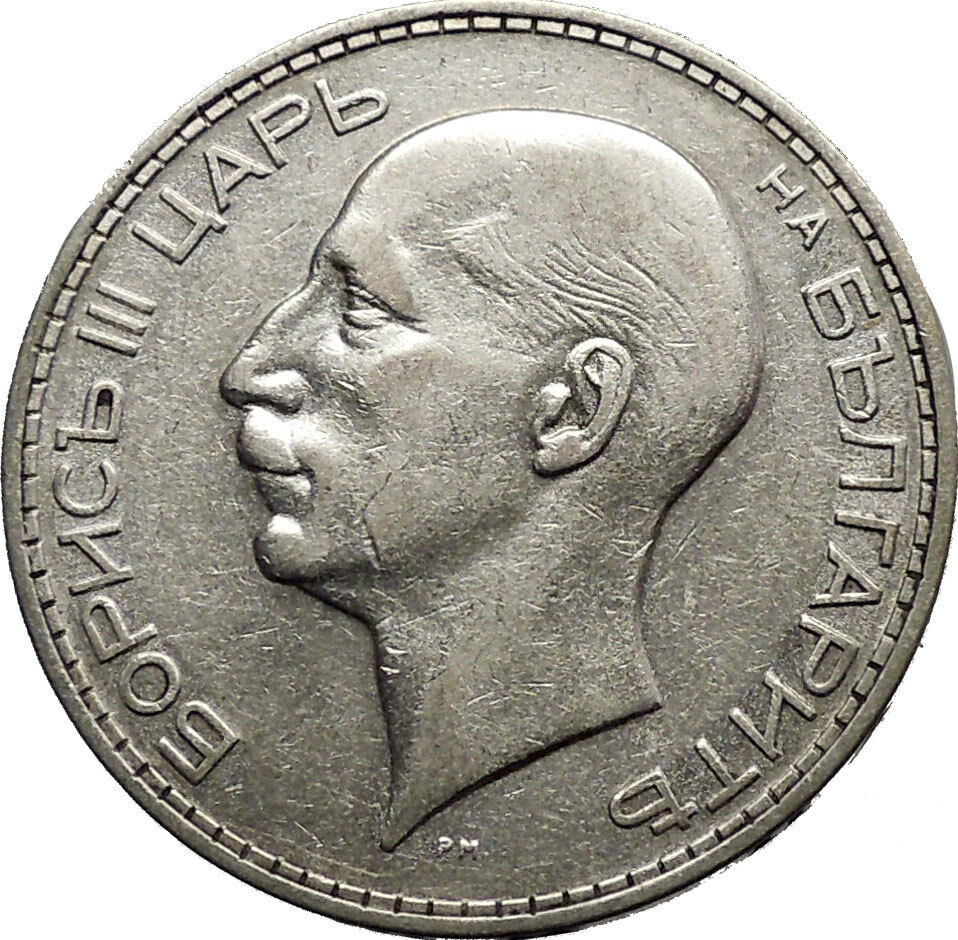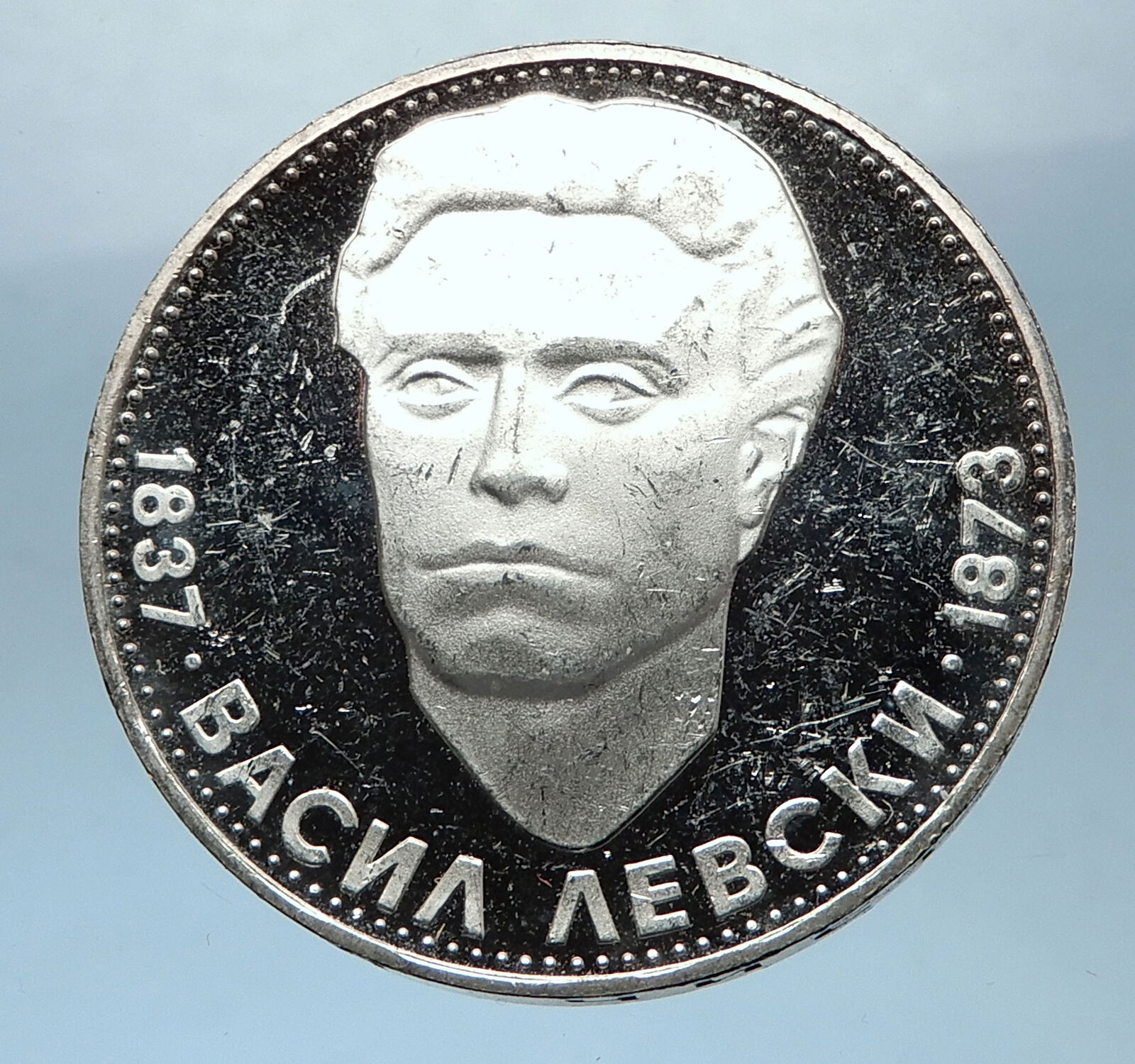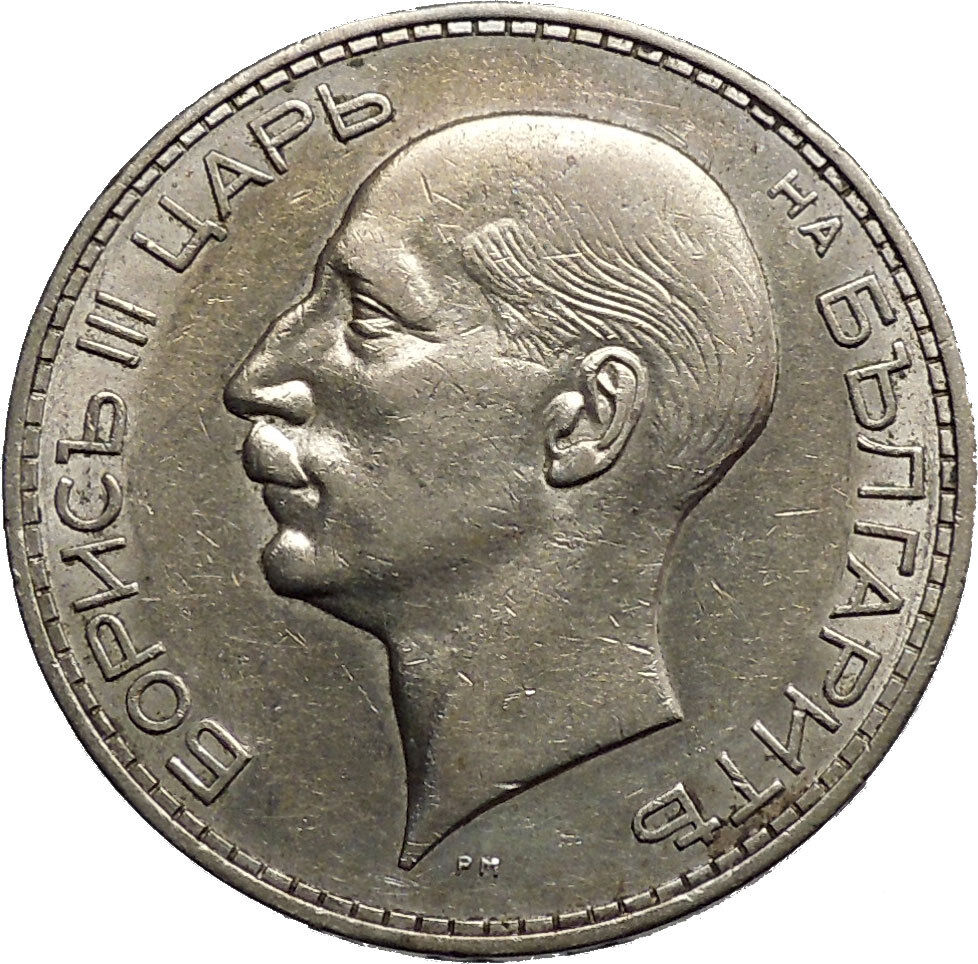|
Bulgaria
16th Winter Olympic Games, Albertville (France), 1992: Ski-running
1990 Proof Silver 25 Leva 38.65mm (23.40 grams) 0.900 Silver (0.6953 oz. ASW)
Reference: KM# 195
НАРОДНА РЕПУБЛИКА БЪЛГАРИЯ ** 1990 ∙ 25 ЛЕВА **, Coat- -of-arms of
People’s Republic of Bulgaria.
* XVI ЗИМНИ ОЛИМПИЙСКИ ИГРИ * 1992, Skiers.
You are bidding on the exact item pictured, provided with a Certificate of Authenticity and Lifetime Guarantee of Authenticity.
 The 1992 Winter Olympics, officially known as the XVI Olympic Winter Games (French: XVIes Jeux Olympiques d’hiver) and commonly known as Albertville ’92, was a winter multi-sport event held from 8 to 23 February 1992 in and around Albertville, France. Albertville won the bid to host the Winter Olympics in 1986, beating Sofia, Falun, Lillehammer, Cortina d’Ampezzo, Anchorage, and Berchtesgaden. The 1992 Winter Olympics were the last winter games held on a leap year the same year as the Summer Olympics. The Games were the fifth Olympic Games held in France and the country’s third Winter Olympics, after the 1924 Winter Games in Chamonix and the 1968 Winter Games in Grenoble. The 1992 Winter Olympics, officially known as the XVI Olympic Winter Games (French: XVIes Jeux Olympiques d’hiver) and commonly known as Albertville ’92, was a winter multi-sport event held from 8 to 23 February 1992 in and around Albertville, France. Albertville won the bid to host the Winter Olympics in 1986, beating Sofia, Falun, Lillehammer, Cortina d’Ampezzo, Anchorage, and Berchtesgaden. The 1992 Winter Olympics were the last winter games held on a leap year the same year as the Summer Olympics. The Games were the fifth Olympic Games held in France and the country’s third Winter Olympics, after the 1924 Winter Games in Chamonix and the 1968 Winter Games in Grenoble.
Figure skating, short track speed skating, speed skating, and the opening and closing ceremonies were the only events that took place in Albertville. The other events were held in the villages of Courchevel, La Plagne, Les Arcs, Les Menuires, Les Saisies, Méribel, Pralognan-la-Vanoise, Tignes, and Val d’Isère. Sixty-four nations and 1,801 athletes participated in six sports and fifty-seven events. This included both the Unified Team, representing the non-Baltic former Soviet republics, and Germany, newly consolidated as a team following the reunification of the former East and West Germany in 1990. The event also saw the debut of eight nations in the Winter Olympics. New events included Short track speed skating, freestyle skiing, and women’s biathlon. These were the last Winter Olympics to include demonstration sports, consisting of curling, aerials and ski ballet, and speed skiing, and the last Games to feature an outdoor speed skating rink.

Bulgaria (Bulgarian: България, tr. Bǎlgariya), officially the Republic of Bulgaria (Bulgarian: Република България, tr. Republika Bǎlgariya, IPA: [rɛˈpublikɐ bɐɫˈɡarijɐ]), is a country in southeastern Europe. It is bordered by Romania to the north, Serbia and Macedonia to the west, Greece and Turkey to the south, and the Black Sea to the east. With a territory of 110,994 square kilometres (42,855 sq mi), Bulgaria is Europe’s 16th-largest country.
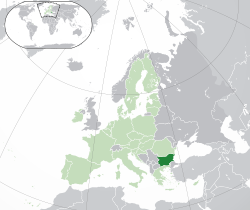 Organised prehistoric cultures began developing on current Bulgarian lands during the Neolithic period. Its ancient history saw the presence of the Thracians, Ancient Greeks, Persians, Celts, Romans, Goths, Alans and Huns. The emergence of a unified Bulgarian state dates back to the establishment of the First Bulgarian Empire in 681 AD, which dominated most of the Balkans and functioned as a cultural hub for Slavs during the Middle Ages. With the downfall of the Second Bulgarian Empire in 1396, its territories came under Ottoman rule for nearly five centuries. The Russo-Turkish War of 1877-78 led to the formation of the Third Bulgarian State. The following years saw several conflicts with its neighbours, which prompted Bulgaria to align with Germany in both world wars. In 1946 it became a one-party socialist state as part of the Soviet-led Eastern Bloc. In December 1989 the ruling Communist Party allowed multi-party elections, which subsequently led to Bulgaria’s transition into a democracy and a market-based economy. Organised prehistoric cultures began developing on current Bulgarian lands during the Neolithic period. Its ancient history saw the presence of the Thracians, Ancient Greeks, Persians, Celts, Romans, Goths, Alans and Huns. The emergence of a unified Bulgarian state dates back to the establishment of the First Bulgarian Empire in 681 AD, which dominated most of the Balkans and functioned as a cultural hub for Slavs during the Middle Ages. With the downfall of the Second Bulgarian Empire in 1396, its territories came under Ottoman rule for nearly five centuries. The Russo-Turkish War of 1877-78 led to the formation of the Third Bulgarian State. The following years saw several conflicts with its neighbours, which prompted Bulgaria to align with Germany in both world wars. In 1946 it became a one-party socialist state as part of the Soviet-led Eastern Bloc. In December 1989 the ruling Communist Party allowed multi-party elections, which subsequently led to Bulgaria’s transition into a democracy and a market-based economy.

Bulgaria’s population of 7.2 million people is predominantly urbanised and mainly concentrated in the administrative centres of its 28 provinces. Most commercial and cultural activities are centred on the capital and largest city, Sofia. The strongest sectors of the economy are heavy industry, power engineering, and agriculture, all of which rely on local natural resources.
The country’s current political structure dates to the adoption of a democratic constitution in 1991. Bulgaria is a unitary parliamentary republic with a high degree of political, administrative, and economic centralisation. It is a member of the European Union, NATO, and the Council of Europe; a founding state of the Organization for Security and Co-operation in Europe (OSCE); and has taken a seat at the UN Security Council three times.
|





 The 1992 Winter Olympics, officially known as the XVI Olympic Winter Games (French: XVIes Jeux Olympiques d’hiver) and commonly known as Albertville ’92, was a winter multi-sport event held from 8 to 23 February 1992 in and around Albertville, France. Albertville won the bid to host the Winter Olympics in 1986, beating Sofia, Falun, Lillehammer, Cortina d’Ampezzo, Anchorage, and Berchtesgaden. The 1992 Winter Olympics were the last winter games held on a leap year the same year as the Summer Olympics. The Games were the fifth Olympic Games held in France and the country’s third Winter Olympics, after the 1924 Winter Games in Chamonix and the 1968 Winter Games in Grenoble.
The 1992 Winter Olympics, officially known as the XVI Olympic Winter Games (French: XVIes Jeux Olympiques d’hiver) and commonly known as Albertville ’92, was a winter multi-sport event held from 8 to 23 February 1992 in and around Albertville, France. Albertville won the bid to host the Winter Olympics in 1986, beating Sofia, Falun, Lillehammer, Cortina d’Ampezzo, Anchorage, and Berchtesgaden. The 1992 Winter Olympics were the last winter games held on a leap year the same year as the Summer Olympics. The Games were the fifth Olympic Games held in France and the country’s third Winter Olympics, after the 1924 Winter Games in Chamonix and the 1968 Winter Games in Grenoble.
 Organised prehistoric cultures began developing on current Bulgarian lands during the Neolithic period. Its ancient history saw the presence of the Thracians, Ancient Greeks, Persians, Celts, Romans, Goths, Alans and Huns. The emergence of a unified Bulgarian state dates back to the establishment of the First Bulgarian Empire in 681 AD, which dominated most of the Balkans and functioned as a cultural hub for Slavs during the Middle Ages. With the downfall of the Second Bulgarian Empire in 1396, its territories came under Ottoman rule for nearly five centuries. The Russo-Turkish War of 1877-78 led to the formation of the Third Bulgarian State. The following years saw several conflicts with its neighbours, which prompted Bulgaria to align with Germany in both world wars. In 1946 it became a one-party socialist state as part of the Soviet-led Eastern Bloc. In December 1989 the ruling Communist Party allowed multi-party elections, which subsequently led to Bulgaria’s transition into a democracy and a market-based economy.
Organised prehistoric cultures began developing on current Bulgarian lands during the Neolithic period. Its ancient history saw the presence of the Thracians, Ancient Greeks, Persians, Celts, Romans, Goths, Alans and Huns. The emergence of a unified Bulgarian state dates back to the establishment of the First Bulgarian Empire in 681 AD, which dominated most of the Balkans and functioned as a cultural hub for Slavs during the Middle Ages. With the downfall of the Second Bulgarian Empire in 1396, its territories came under Ottoman rule for nearly five centuries. The Russo-Turkish War of 1877-78 led to the formation of the Third Bulgarian State. The following years saw several conflicts with its neighbours, which prompted Bulgaria to align with Germany in both world wars. In 1946 it became a one-party socialist state as part of the Soviet-led Eastern Bloc. In December 1989 the ruling Communist Party allowed multi-party elections, which subsequently led to Bulgaria’s transition into a democracy and a market-based economy.


